Mozambique: Second highest rate of child marriages in southern Africa - NGO
Mozambique: 80% turn to traditional medicine for health care – report

Photo: O País
At least 80% of Mozambicans continue to use traditional and alternative medicine for primary health care, according to Mozambique’s Ministry of Health (MISAU), which adds that the country will soon regulate traditional medicine and products in order to improve sector activity.
The Mozambican Heroes’ Square in Maputo on Monday hosted African Traditional Medicine Day celebrations, occasioning a reappraisal of the national traditional medicine policy and respective implementation strategy following the 2000 shake-up.
Authorities say progress has been made as regards consolidation, but challenges remain.
In two decades, 110,422 traditional medicine practitioners have been trained. Gaspar Chirindza is part of the new generation of traditional doctors, and started practising in his teens.
Chirindza relates that he was stricken with a disease with no apparent conventional cure. He became ill to the point of being hospitalised, where a conventional doctor advised him to resort to traditional medicine to address the problem. He thus became converted.
Another speaker, Fernando Mathe, said he had been practising traditional medicine for a long time, and highlighted the contribution made by practitioners in this sector. Among challenges to overcome, he highlighted fake traditional healers.
“We practitioners of traditional and alternative medicine believe that, by continuing this collaboration and if each one of us contributes, diseases may be identified and diagnosed in advance. For that, we needed collaboration and cooperation from everyone to identify those who harm society under the cloak of traditional medicine,” Mathe said.
The representative of the World Health Organisation in Mozambique, Djamila Cabral, spoke of the strides forward that traditional medicine in Africa had taken and encouraged the country to take advantage of the progress achieved.
Without indicating specific measures , Djamila Cabral said that countries should “continue to produce more evidence on safety, efficacy and quality” in the preparation of herbal medicines.
It was also “necessary to reinforce the strict application of regulatory frameworks and the use of more advanced platforms to share and safeguard the knowledge of traditional medicine for future generations,” Cabral said.
Deputy Minister of Health, Lídia Cardoso, who led proceedings, said that “although there are advances, we still face trends” that tarnish the name of “age-old medicine, as is the case trafficking in human organs, the murder of albino people, and witchcraft accusations against the elderly”.
According to Deputy Minister Cardoso, the country is still struggling with the problem of “uncontrolled fires, extinction of medicinal plants, and deceptive advertising and practices. These phenomena have been interpreted with frequent mention of the name of traditional medicine”, which constitutes a“ barrier to the future we want ” in this field.
The deputy minister called for everyone’s commitment to the fight against these criminal and unethical acts, saying that the proposal to regulate alternative medicine was under preparation, and would also regulate establishments selling medicinal products.
The Deputy Minister of Health pointed out that, in the last 20 years, 110 ,000 medical practitioners had been registered across various training courses.
The growth of traditional medicine in Africa led to the African Union and the World Health Organization declaring 31 August “African Traditional Medicine Day”, by resolution of all member countries, including Mozambique.
In 2010, Mozambique created its own Institute of Traditional Medicine and, subsequently, the Ethnobotanical Development Centre, which researches medicinal plants.
This year, Traditional African Medicine Day was celebrated under the motto “Two Decades of African Traditional Medicine 2001-2020: What Progress in Countries”
By Amândio Borges
Today we celebrate African #TraditionalMedicineDay🌿👩🏿🔬🌍
Regulation & promotion of African traditional medicine have greatly advanced over the past 2 decades.@WHO & partners like @AfricaCDC are supporting research & development of traditional remedies, including for #COVID19. pic.twitter.com/8JBsJoXzqI
— WHO African Region (@WHOAFRO) August 31, 2020


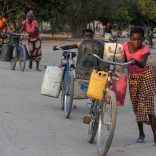
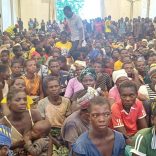
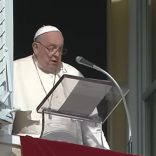
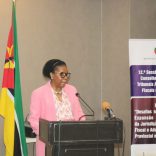



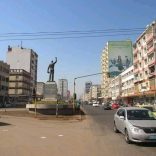
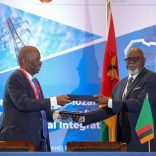

Leave a Reply
Be the First to Comment!
You must be logged in to post a comment.
You must be logged in to post a comment.